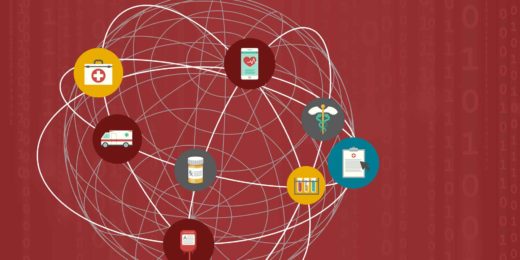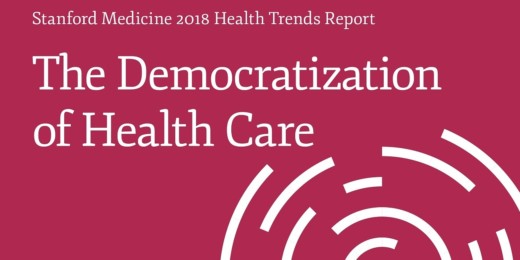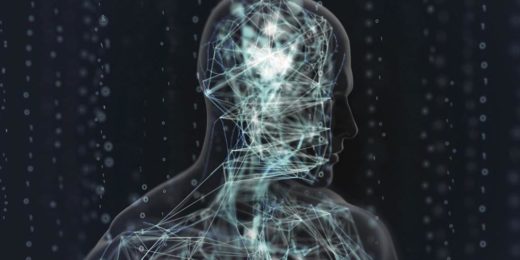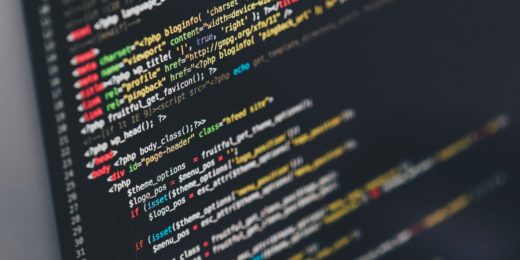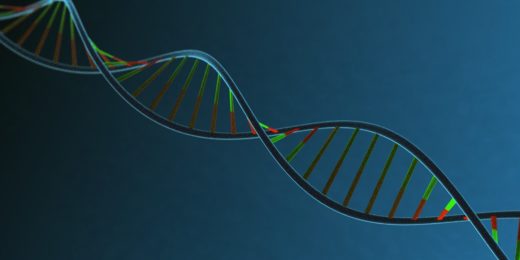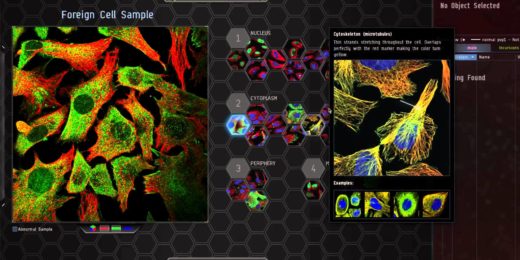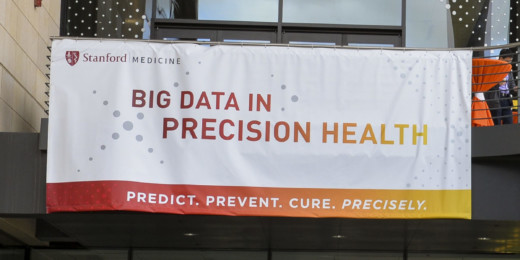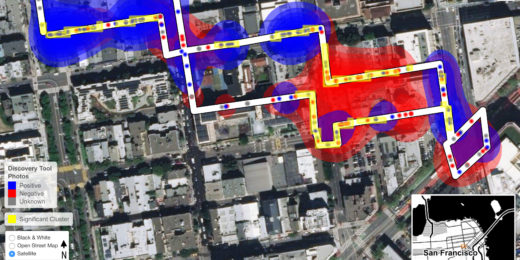Understanding the roles of various microbes in the human microbiome is challenging, but statistics can help, Stanford researcher Susan Holmes explains.
Category: Data Sciences
Registration now open for Stanford’s Big Data in Precision Health conference
The seventh annual Big Data in Precision Health conference will be held May 22 and 23 on the Stanford campus; registration is now open.
Stanford launches new Institute for Human-Centered Artificial Intelligence
The Stanford Institute for Human-Centered Artifical Intelligence will advance AI research, education and more to improve the human condition.
Heart failure boosts risk of death following surgery
A Stanford researcher has found that patients with heart failure, even if it's relatively mild, are more likely to die within three months after surgery.
A look at how data is democratizing health care
Dean Lloyd Minor discusses findings of Stanford Medicine's recently released Health Trends Report.
AI demonstrates potential to identify irregular heart rhythms as well as humans
Artificial intelligence tied to a wearable heart monitor has shown potential to help diagnose irregular heart rhythms, new research shows.
Stanford Medicine Health Trends Report examines opportunity to democratize health care
The Stanford Medicine 2018 Health Trends Report found that an explosion of data in medicine is democratizing health care.
More data, more problems: Selecting fewer measurements could improve health-risk assessments
A Stanford study highlights a data optimization method for health-risk assessments to lower costs and and improve diagnostic power.
Stanford Medicine magazine explores how digital technology is changing health care
The latest issue of Stanford Medicine magazine explores the potential for digitally driven innovation to transform health education, diagnostics and care.
Big data strikes again — subdividing tumor types to predict patient outcome, personalized treatment
A Stanford team has developed an algorithm that uses data about tumors to identify new classifications that can provide information about patient outcomes
How should an algorithm generate recommendations for patient care?
A Stanford study examines a key aspect of artificial intelligence: If machines provide advice for patient care, who should those machines be learning from?
A roadmap for the future of electronic health records
A new white paper from Stanford Medicine details obstacles and offers solutions for achieving the full potential of electronic health records.
Can genome sequencing be used to predict disease? Quite possibly, new research suggests
Scientists have developed an algorithm that combines genome sequence data and electronic health information to predict risk for genetic disease.
Massive online space game refines protein localization
Citizen science through an online computer game, EVE online, helps scientists better classify protein locations inside a cell.
From AI to clinical informatics, Big Data conference videos offer deeper dive
Video interviews from Stanford's Big Data in Precision Health conference explore topics from artificial intelligence in radiology to clinical informatics.
Citizen science research investigates neighborhoods’ effects on well-being
Researchers engaged citizen scientists to take photos and collect other data to investigate how neighborhoods can affect health.






